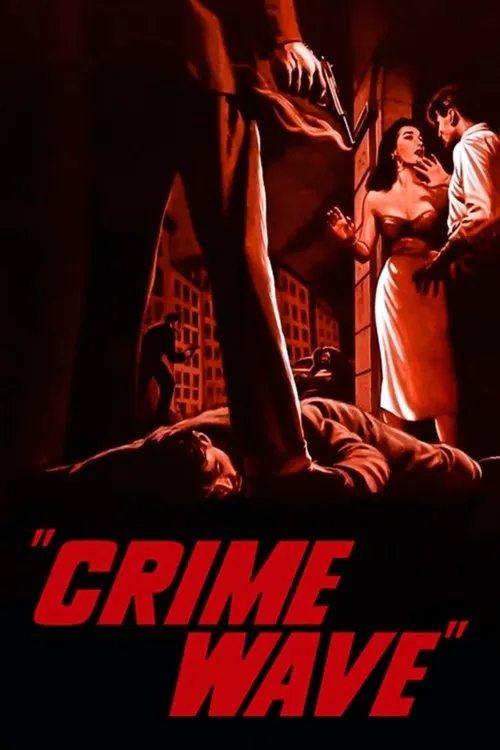Crime Wave

Plot
Crime Wave, released in 1954, is a gripping film noir directed by André De Toth and starring Sterling Hayden. The movie takes place in the early 1950s, where the Cold War paranoia looms over the United States, creating a climate of fear as people view their neighbors with suspicion and distrust. Steve Lacey, played by Sterling Hayden, is a reformed parolee trying to rebuild his life and start anew after serving time in prison. Lacey's past seems to be behind him, or so we think, until a wounded former cellmate named Vincent 'Vinnie' Tranké, played by Ted de Corsia, shows up at his doorstep, seeking refuge from the gangland violence he's entangled in. Tranké's troubles have caught up with him, and now he's in a precarious situation, making him desperate to find a place where he can hide. Lacey, out of a sense of responsibility and pity for his former cellmate, allows Tranké to stay with him, even though Tranké's presence seems to jeopardize Lacey's fragile attempts at rebuilding his life. However, Lacey's decision to harbor Tranké is not without consequences. The presence of Tranké inadvertently puts him in the crosshairs of the two other former cellmates, who are now embroiled in a world of crime and violence. Vincent Curran, also known as 'Curran' (played by Gene Evans) and Leo Rierdan, both former inmates of Steve's, have managed to stay one step ahead of the law by committing string of heists across the country. However, their actions eventually catch the attention of the authorities, prompting them to force Lacey into joining them for one last heist. Curran, a menacing and ruthless individual, is the driving force behind this decision, using guilt and extortion to manipulate Lacey into participating in their ill-fated bank heist. Lacey is faced with an impossible decision: either defy the law and risk going back to prison for assisting Tranké or join his former cellmates on their nefarious plan, potentially jeopardizing everything he has built for himself. Trapped between his past and his desire to start anew, Lacey finds himself in the midst of a desperate game where he must choose between his own conscience and the consequences of his actions. On the other hand, Steve also starts to develop feelings for a local woman named Edie, played by Peggy Dow. Edie represents a chance at redemption for Lacey and serves as a reminder that he's still connected to the world outside of his prison cell. Through his interactions with Edie, we see glimpses of Lacey's humanity, reminding us that beneath the tough exterior, he's still a broken man searching for a way out of the darkness. As Lacey navigates this treacherous world of gangs, parole officers, and ex-cons, Crime Wave builds towards its intense and thrilling climax. With its gritty realism and noir aesthetic, André DeToth's direction brings a sense of realism to the world of crime and punishment, where the lines between right and wrong are constantly blurred. Crime Wave is a gripping story about the human condition, where we see Steve Lacey, the protagonist, fighting a desperate battle between his desire for redemption and the pull of his past. The film raises questions about the nature of guilt and responsibility, the consequences of our actions, and the struggles we face in rebuilding our lives after making mistakes. Ultimately, Crime Wave is a classic film noir that will keep viewers on the edge of their seats, questioning the morality of Steve Lacey and his circumstances, and ultimately pondering the very meaning of redemption.
Reviews
Recommendations




